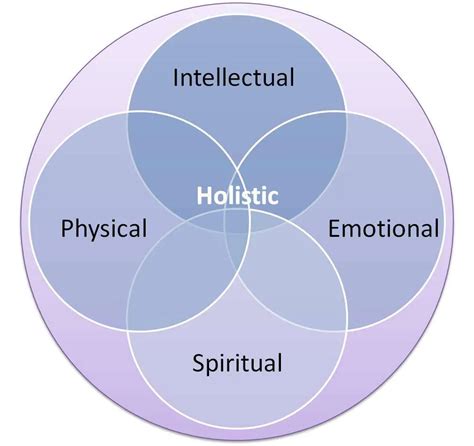As we confront a growing mental health crisis, the conversation is increasingly turning towards the benefits of holistic practices. For decades, the medical community has primarily focused on pharmacological interventions, operating under the assumption that mental health conditions are primarily issues of chemical imbalances and that the solution lies in a pill. However, this perspective is slowly shifting, driven by both empirical evidence and personal narratives that highlight the limitations of a pharmacological approach and the need for more comprehensive treatment plans.
“It’s not clear how the GLP-1 drugs lead to weight loss,” one commenter pointed out, thereby illustrating a broader point about pharmaceuticals: the exact mechanisms often remain poorly understood, and the benefits may, in some cases, be more about secondary effects than direct causality. Similarly, psychiatric medications often show a degree of efficacy, but they rarely address the underlying causes of mental health disorders. This has led to criticisms that psychiatry is somewhat akin to putting a band-aid on a deeper wound without addressing the root cause.
The debate becomes especially poignant when we consider conditions like depression, anxiety, and ADHD. Medications like SSRIs and stimulants can alleviate symptoms but often leave the root issues unexamined and unresolved. For instance, BobbyJo’s comment elucidates the challenge succinctly: “A hormone that changed your behavior such that the resulting behavior changes made you happier is far more of an obfuscated ask of modern pharmacology.” The sentiment here is that simply altering brain chemistry is not a panacea; mental health is inextricably linked to our environment, behaviors, and overall lifestyle.
This brings us to the heart of holistic practices: a lifestyle-oriented approach to mental health. Diet, exercise, sleep, meaningful social interactions, and adequate rest are pivotal for well-being. The importance of diet, in particular, is gaining traction, with many arguing that proper nutrition can have transformative effects on mental health. The son of Roblox CEO reportedly alleviated severe mental health issues by adopting a low-carb diet, suggesting that what we eat can profoundly impact our mental states.
An active lifestyle is another cornerstone of holistic mental health practices. mjbeswick emphasized, “You don’t need drugs to grow muscle, just an active lifestyle; which is also highly beneficial to mental health.” This underscores the interconnectedness of physical and mental health. Regular physical activity not only benefits the body but also releases endorphins and other neurotransmitters that can enhance mood and reduce anxiety. In this way, leading an active lifestyle can be as effective, if not more, than pharmaceutical interventions.
Furthermore, mental health often grapples with societal and environmental challenges. xlii highlighted, “Today is very hostile to mental health,” mentioning modern stressors like microplastics, poor diet, overworking, and social pressures stemming from social media. These factors collectively contribute to a hostile environment for mental well-being. Hence, a holistic approach also involves restructuring our living conditions to create supportive, nurturing environments. This could mean reclaiming some simplicity in our lifestyles, as can16358p eloquently articulated.
Psychiatric models need to adapt to these insights. phantaslavi expressed it well by stating, “mental health conditions are often caused by physiological imbalance that is socially constructed.” This perspective promotes a multidimensional approach to mental health, recognizing that our mental states are influenced by a web of social, environmental, and physiological factors. The reductionist view of mental health as merely a chemical imbalance often fails to accommodate the complexities and subtleties of human psychology.
Finally, it’s essential to incorporate community and support networks into mental health treatment. Communal activities, group therapies, and social supports can provide emotional backing and camaraderie, which are invaluable for anyone grappling with mental health issues. This sense of community and belonging can significantly alleviate feelings of isolation and loneliness that exacerbate mental health problems. Online and offline support groups, mental health communities, and peer networks can be incredibly beneficial.
In conclusion, as we deepen our understanding of mental health, it is becoming increasingly evident that a holistic approach is vital. Medications may provide temporary relief, but sustainable mental health requires lifestyle changes, community support, and a more profound understanding of the intricate link between body and mind. It’s time for the medical community and society at large to embrace these holistic practices wholeheartedly.


Leave a Reply